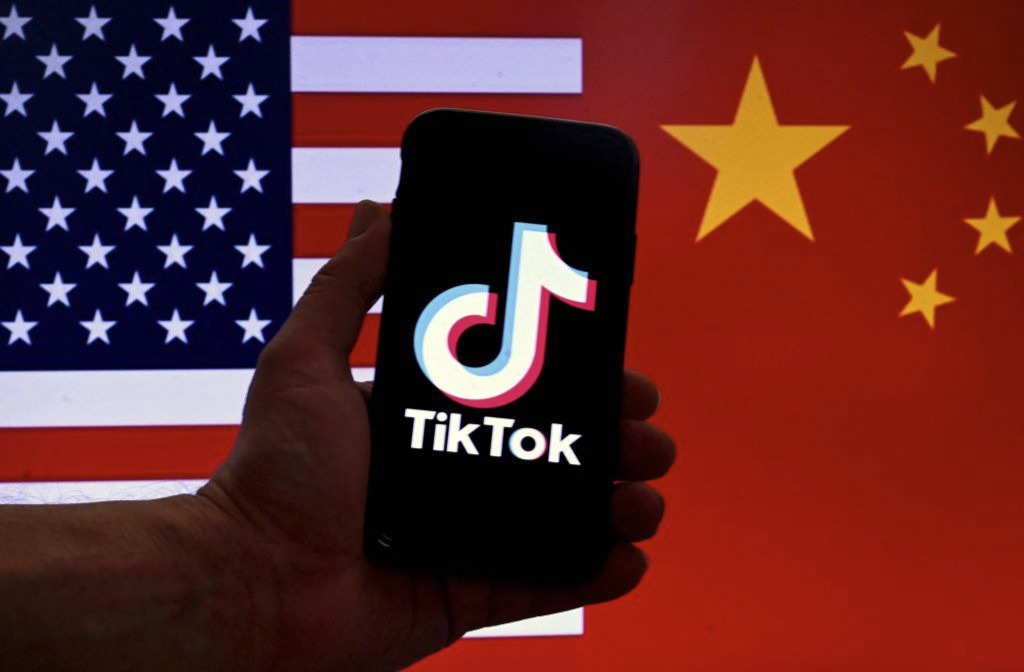Hypocrisy as TikTok secretly uses U.S. courts against free speech
Commentary
As is well known, TikTok is a national security threat because communist China has laws that give it access to the data of its almost 1.7 billion global users. Yet naive teenagers around the world download the app on their smartphones, thirsty for the latest kid craze trend. TikTok’s algorithm then channels these users more deeply into their random and sometimes destructive whims.
The most recent TikTok trend, for example, is playing dead from drinking a McDonald’s “Grimace” purple milkshake. Yet with almost 1.4 billion joint views on TikTok, #grimaceshake and #grimace underline the adage “all publicity is good publicity” (so soon after Bud Light proved it wrong).
McDonald’s is happy with the attention, though. On June 27, it tweeted a pic of puffy Grimace with his milkshake, saying, “meee pretending i don’t see the grimace shake trendd,” with the misspelling apparently integral to the muppet’s 1970s character.
If even a fraction of TikTok viewers buy a $4 Grimace milkshake, McDonald’s will have made a tidy fortune. That could lift McDonald’s stock price. Since June 12, the milkshake’s release date and Grimace’s “birthday,” the company’s market capitalization is more than $4 billion.
Sounds fun and profitable for not only McDonald’s but also other U.S. corporations, TikTok, and influencers that manage to ride the TikTok party wave, purple milkshakes flying.
But the owner of TikTok, Beijing-based ByteDance, calls the shots. Above ByteDance stands TikTok’s ultimate controller—the Chinese Communist Party (CCP). The CCP is not only totalitarian but genocidal. It’s arguably the gravest threat to American democracy, and democracy globally, that the world has known.

This had the Trump administration pioneering a TikTok ban. The state of Montana followed.
But according to The New York Times, TikTok responded against the bans by secretly finding and funding anti-ban TikTokers to launch legal campaigns based on free speech claims.
As a result, former President Donald Trump’s ban was struck down, and Jameel Jaffer, executive director of Columbia University’s Knight First Amendment Institute, predicted that the courts would also strike down Montana’s ban.
Some appear to fall for the free speech argument; national security be damned—the Times article ended by quoting Mr. Jaffer.
“TikTok is an American company and has First Amendment rights, but there has been rhetoric in Montana and the federal government suggesting that TikTok’s connections to China mean it’s not an ordinary First Amendment actor,” Mr. Jaffer told the Times. “[The suit] emphasizes that this isn’t just about the rights of TikTok, let alone the rights of ByteDance. It’s about the rights of TikTok’s users, including its American users, and I think that’s a really important point to make.”
The point not aired by the Times is that we are what we read. By allowing Beijing to control the TikTok algorithm and thus the content it serves to U.S. users, we enable the CCP to influence our thinking to a dangerously great extent. This is most concerning for the young and impressionable—TikTok’s strong suit.
Among 18- to 19-year-old Americans, 67 percent use TikTok; 41 percent of all Americans are users.
ByteDance serves the United States the junk food equivalent of its products. Its algorithm more carefully curates educational content for Chinese citizens on China’s version of TikTok, called Douyin. TikTok is banned in China.
Democracy depends on an educated electorate. By allowing TikTok to shape our future voters, we relegate democracy to be shaped by the CCP. This consigns our history to the dustbin and is a huge mistake for not only American democracy but for democracy globally.
What about free speech?
The free speech of ByteDance shouldn’t be protected, as the CCP uses ByteDance to censor and channel the free speech of its users for its own authoritarian benefit. America should never allow our adversaries to use our Constitution against its broader free speech protections. Free speech protections shouldn’t be used against free speech.
The free speech of TikTok users is far more important. But contrary to the lawyers’ arguments, it will not be impeded by a ban on TikTok. Existing TikTok users may use other social media or start their own. A plethora of such platforms now exist that have nothing to do with the CCP.
TikTok influencers who amassed millions of followers naturally don’t want to lose them. But they don’t have to—they can transfer their followers to new platforms. A U.S. law could mandate that TikTok facilitate the transfer of followers to any new platform where a user wishes to go. This should be easier than transferring medical records from an old to a new doctor. Like medical records, social media should belong to the user, not the company.
Views expressed in this article are the opinions of the author and do not necessarily reflect the views of The Epoch Times.

















































